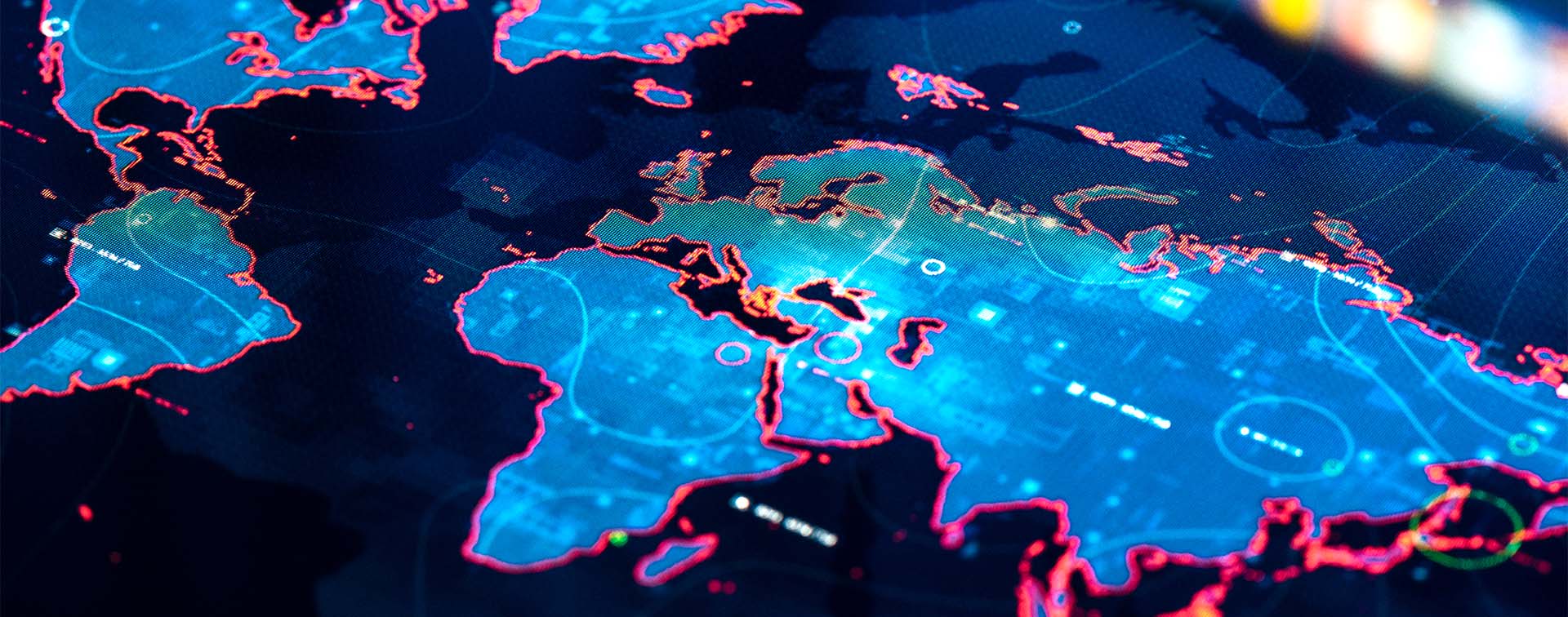
David K. Young is the President of the Committee for Economic Development of The Conference Board and former Chief Executive Officer of Oxford Analytica, a leading geopolitical and macroeconomic analysis and advisory company.
We enter 2025 bracing ourselves in the full knowledge of elevated geopolitical uncertainty around the world following a historic election year. The USA will soon see the return of President-elect Trump to the White House after a resounding victory that not only saw him win the popular vote but also the Republicans secure control of both Houses of Congress. While there may be divisions within the Republican Party, this unforeseen ‘trifecta’ was a dominant victory that sets the stage for a new year bound to be full of twists, turns, and tweets. The role of the USA in both domestic and foreign policy, the rapid development and deployment of technology, and the delicate yet intricate nature of geopolitics are key issues that will shape the next 12 months. Ominously, a top NATO military official has urged businesses to be prepared for a wartime scenario and to adjust production and distribution strategies accordingly.
Over four billion votes were cast around the globe last year in an unprecedented wave that involved more than 70 national elections and over 50% of the world’s GDP. Overall, it has been a punishing time for incumbents, who performed poorly as populist movements spoke at ballot boxes from Global North to Global South. Some notably lost power: the UK’s Conservatives Party lost its 14-year rule, and the USA will be back in the hands of the Republican Party. And, in countries where they didn’t lose power outright, many incumbents were forced into coalitions, including in India and South Africa, while others had to adjust policies accordingly thus adjusting the policy priorities of many countries.

The European Union will be one of the most right-wing commissions for years as one incumbent who did not lose, Ursula von der Leyen, has taken to the helm for her second term as President of the European Commission. The bloc’s two largest economies, Germany and France are in a state of disarray, however. Germany is in limbo until elections are held in February after its coalition government imploded and Olaf Scholz lost a confidence vote in December, and the future is foggy for France after its government fell, also in December. The failure of these two governments exemplifies the distinct fragility of democracy.
Now well past the 1,000 day mark, the Russia‒Ukraine war will continue to have significant global implications, and Ukraine is precariously positioned. Late 2024 saw dramatic changes in warfare tactics, elevating the intensity of the conflict, as both the USA and the UK authorized Ukraine to use US-made, long-range ATACMS missiles for specific strikes inside Russia, as well as American-supplied antipersonnel land mines, to counter Russian advances.
Meanwhile, Russia has extended its relationship with North Korea, which has stationed over 10,000 soldiers on the frontline in Kursk in operational and conflict roles. President-elect Trump continues to emphasize the need to end this war immediately, but the exact path to a mutually agreed upon resolution is hard to see. In fear of losing financial support and military assistance, does Ukraine cede territory for peace and a path to NATO membership? Furthermore, this conflict elevates the hotly debated topic of the future of NATO as well as those of funding and the future role and importance of multi-lateral agreements.
In terms of Israel, and what will remain a tremendously complex and dynamic situation, this multi-faceted conflict will continue to involve nations within the region and beyond. It is difficult to see any lasting resolutions in the year ahead as long as temporary cease-fires are discussed, established, and broken. While conflicts could move towards diplomacy as a path to a resolution, tensions could just as easily tip the balance and result in region-wide conflicts.
Undoubtedly a major if not the major issue that lies ahead is US‒China relations and their influence on almost every aspect of business, government, and society, from foreign policy to tech and trade policy. Decoupling looks set to continue, and we can anticipate a broader East versus West divide.
In terms of passport power, the USA has surprisingly emerged as the second biggest faller of the past decade on the Henley Passport Index after Venezuela, dropping from 2nd place in 2015 to 9th place in the latest 2025 rankings. President-elect Trump’s ‘America First’ policy priorities could further underpin this trend. In contrast, China is among the biggest climbers on the index, jumping from 94th in 2015 to 60th in 2025, with its visa-free score rising by 40 destinations in just the last decade. And in terms of its openness to other nations, China has also risen in the ranks of the Henley Openness Index, providing visa-free access to a further 17 countries over the past year alone. It now sits above America, in 80th position on the 2025 ranking, granting visa-free access to 58 nations, compared to the USA, which ranks 84th and allows just 46 other countries visa-free entry. Focusing on improved mobility for passport holders by signing mutually beneficial visa waivers with other countries is a central pillar to facilitating a country’s ‘openness’ — the UAE is another notable example of successfully prioritizing just such a policy.
While technology advances, notably with the rapid emergence and deployment of generative artificial intelligence (AI), it will continue to alter business operations and spur a broad array of conversations from education to workforce planning. The implications are beyond operational optimization as AI is fundamentally changing our global world order.
There are five reasons why this is the case: first, the acceleration of the East versus its decoupling from the West; second, the empowerment and enablement of rogue states and non-state actors; third, the potential elevation of middle power countries, such as the UK, France and Germany, that wish to regain lost global influence by leveraging AI stature; fourth, increased public‒private partnerships as government capitalizes on private sector innovation; and fourth, heightened global inequality as countries prioritizing AI development benefit from economic gains.
The three key geopolitical issues discussed above will capture much of the new administration’s time and attention. President-elect Trump has vowed to end both conflicts, but the exact strategies have to be assumed to be a work in progress behind the scenes. With regard to China, Trump will continue to take a hardline approach to protecting US economic growth and national security.
Given the USA’s global influence, it’s important to note a few domestic priorities for Trump’s new cabinet including regulatory reform, immigration, tariffs, environmental policy, and the tax bill.
A further topic that was not debated adequately on the campaign trail — America’s avalanche of public debt — is putting the nation at a fiscal tipping point. With US debt levels now exceeding USD 36 trillion, and interest payments of USD 890 billion exceeding defense spending, the incoming government has to improve the management of its fiscal health and clarify how it plans to move forward.
COP29 was inconclusive, and COP30 is likely to be even more contentious, with the host country Brazil pushing alternative climate financing ideas, including a wealth tax, that are unacceptable to most Western countries, and continuing the debate over how to promote a transition away from fossil fuels. The central question remains: Does COP still matter, particularly if the USA again withdraws from the Paris Agreement as it did under the previous Trump administration?
There is undoubtedly a growing movement behind the rise of the Global South, as BRICS member states expand their relationships and ultimately their influence, largely fueled by the USA–China decoupling. The 16th annual BRICS Summit last October was the first to include new members Egypt, Ethiopia, Iran, and the UAE. The gradual diversification of the world order and movement away from any one group’s domination will continue, and BRICS will play an increasing role in this.